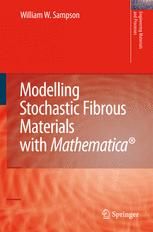

Most ebook files are in PDF format, so you can easily read them using various software such as Foxit Reader or directly on the Google Chrome browser.
Some ebook files are released by publishers in other formats such as .awz, .mobi, .epub, .fb2, etc. You may need to install specific software to read these formats on mobile/PC, such as Calibre.
Please read the tutorial at this link: https://ebookbell.com/faq
We offer FREE conversion to the popular formats you request; however, this may take some time. Therefore, right after payment, please email us, and we will try to provide the service as quickly as possible.
For some exceptional file formats or broken links (if any), please refrain from opening any disputes. Instead, email us first, and we will try to assist within a maximum of 6 hours.
EbookBell Team

4.0
36 reviewsRecent developments in the use of electrospun fibrous materials, for application as scaffolds for tissue engineering and in the application of carbon fibrous materials in fuel cells, has generated new interest in the dependence of the properties and structure of these materials on those of their constituent fibres. Modelling Stochastic Fibrous Materials with Mathematica® provides an overview of the structure of stochastic fibrous materials, and the use of Mathematica® to develop models describing their structure and performance.
Modelling Stochastic Fibrous Materials with Mathematica® provides an introduction to the techniques of statistical geometry and probabilistic modelling for non-mathematicians, and assumes no previous experience of Mathematica®. Using accessible notation and by providing examples of Mathematica® code, expressions are derived for the structural characteristics of stochastic fibrous materials, providing insights into the ways these depend upon each other and the extent to which they can be modified in the laboratory or in a manufacturing environment.
Modelling Stochastic Fibrous Materials with Mathematica® is a valuable resource for researchers and engineers in the paper and non-wovens industries and for those applying non-woven fibrous architectures in composites, fuel cells and filtration applications. The text is highly relevant also to researchers developing applications for electrospinning technologies.
A trial version of Mathematica® 6.0 can be downloaded from http://www.wolfram.com/books/resources, by entering the licence number L3250-9882. Mathematica® notebook files containing the code presented in each chapter can be downloaded from http://www.springer.com/978-1-84800-990-5.